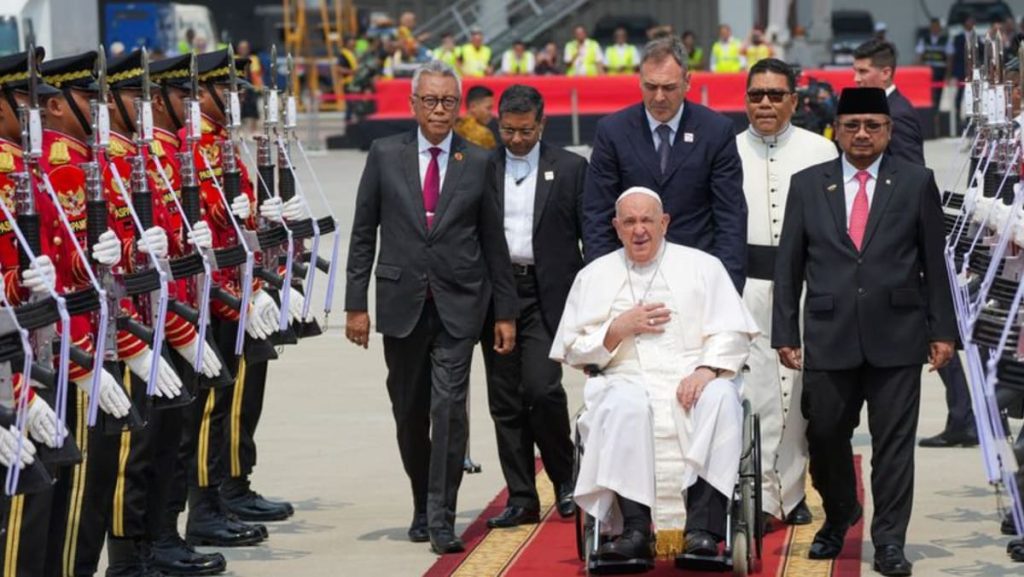Indonesia arrested seven individuals for making online terror threats against Pope Francis during his visit to the country, as part of his larger Asia-Pacific tour. The 87-year-old pontiff aimed to promote religious unity and counter extremism during his visit to the world’s most populous Muslim-majority country. The suspects were apprehended in various cities around Jakarta, as well as in West Sumatra and Bangka Belitung, by Indonesia’s elite counter-terrorism unit, Densus 88.
The individuals are accused of sharing statements and images online that threatened bomb attacks on the pope’s public meetings in Jakarta. Authorities disclosed that the suspects made these threats through social media, also mentioning a potential threat to set fire to the locations the pope was scheduled to visit. His itinerary included stops at key religious sites such as Southeast Asia’s biggest mosque, Jakarta’s cathedral, as well as other important landmarks like the presidential palace and the national football stadium.
Although the specific beliefs of the suspects were not revealed, Indonesia has a long history of grappling with Islamist militancy. The country suffered a devastating terrorist attack in 2002 when bombings on the popular resort island of Bali claimed the lives of 202 individuals. Consequently, security measures were significantly heightened for the pope’s visit, with roads around his scheduled destinations being re-routed or closed to ensure his safety. Approximately 4,000 security personnel were deployed, including snipers, soldiers, police officers, and the pope’s own security team.
The pope’s visit to Indonesia was part of a broader effort to deliver a message of religious harmony and tolerance in a region deeply divided by religious issues. By making Indonesia his first stop on the tour, Pope Francis aimed to highlight the importance of solidarity among different faiths and combatting extremism through dialogue and mutual respect. His visit also symbolized the Vatican’s desire to engage with the Muslim-majority countries and bridge interfaith divides through diplomacy and shared values.
Despite the security threats made by a small group of individuals, the overall reception to Pope Francis in Indonesia was largely positive. He received a warm welcome from religious leaders, government officials, and the general public, with many expressing appreciation for his efforts to promote peace and understanding. The pope’s visit served as a reminder of the power of dialogue and cooperation in overcoming deep-seated differences and fostering a more inclusive and harmonious society.
As Pope Francis continued his journey to Papua New Guinea, East Timor, and Singapore, his visit to Indonesia left a lasting impact on the country and its people. The security challenges faced during his stay underscored the ongoing threat of terrorism in the region but also highlighted the resilience and determination of the authorities to safeguard important religious figures. By emphasizing the importance of unity and dialogue, the pope’s visit served as a beacon of hope and inspiration for those striving to build a more peaceful and cohesive world.


